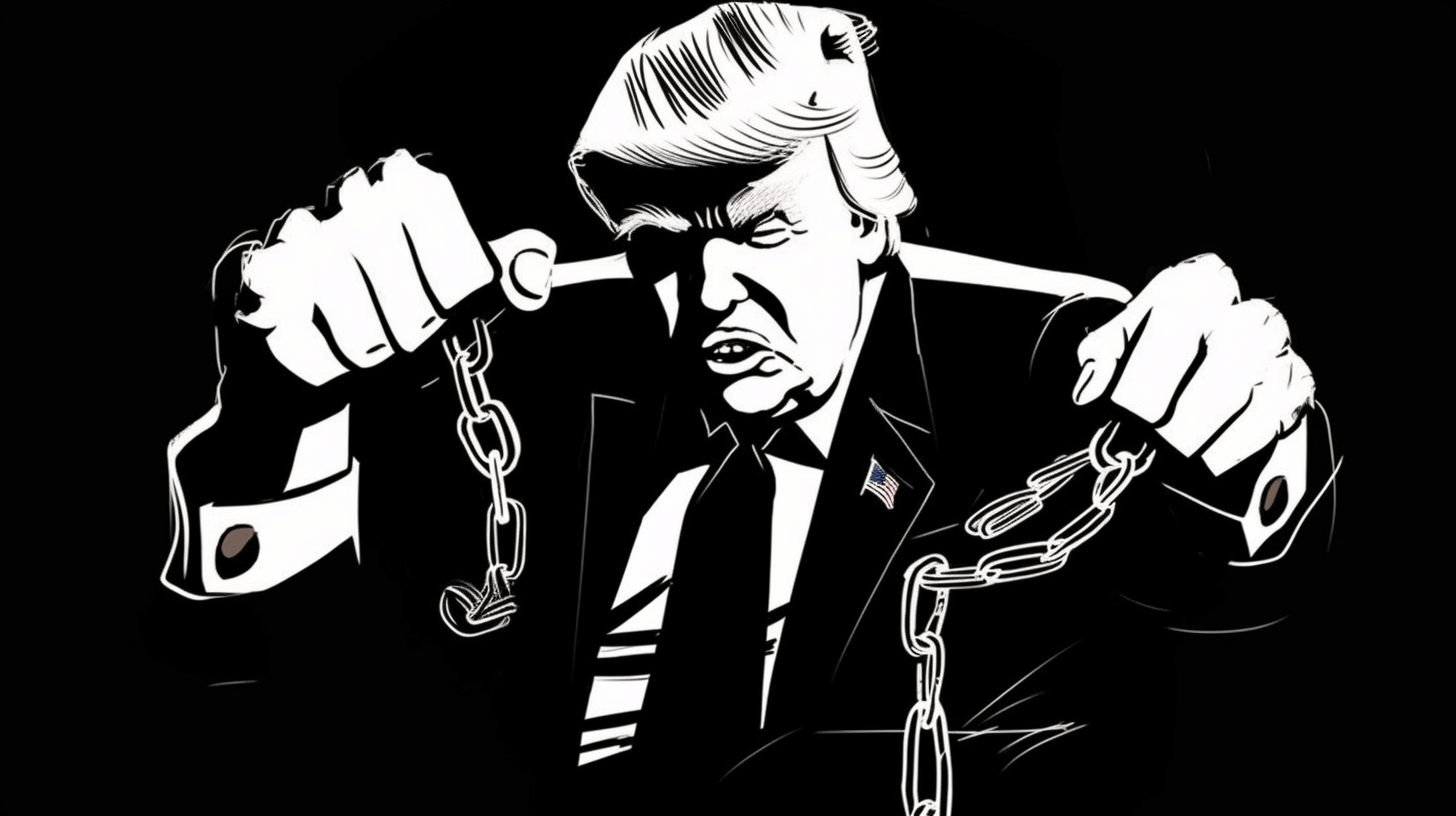🤔💰 Spock ‘Um Budget Cuts: Goin’ Shake Da Economy o’ Nah?
Spock ‘Um Budget Cuts: Goin’ Shake Da Economy o’ Nah? 🤔💰
Dunno if you wen’ hea, but da unemployment rate stay low 📉 an’ inflation stay ova da kine trend, yeah? Da economy 🌐 stay good enough fo’ handle da small kine budget cuts ✂️💰 dat President Biden 🇺🇸 an’ da Republicans 🐘 wen’ agree on.
Da las’ time da US 🇺🇸 wen’ almos’ default on its debt 💳, had one Democrat president an’ one Republican speaker of da House, dey wen’ make one deal fo’ raise da nation’s borrowing limit an’ make certain dat federal spending 💸 no grow too much fo’ several years. Dis deal wen’ save us from defaulting, but wen’ slow down da recovery from da Great Recession 💔📉.
Dis debt deal dat President Biden 🇺🇸 an’ Speaker Kevin McCarthy 🐘 wen’ agree on in principle get less restrictions den da one President Obama 🇺🇸 an’ Speaker John Boehner 🐘 wen’ make in 2011. Dis one focus on jus’ two years of cuts an’ caps in spending 💰. Da economy dat goin’ take dese cuts stay in much betta shape 💪. As one result, economists stay sayin’ dis agreement not likely fo’ cause da same kine long-lasting damage to da recovery dat da 2011 debt ceiling deal wen’ do. An’ on top of dat, dis new kine spending restraint could even help da recovery 💪💵.
Fo’ months, had worries ’bout major economic fallout from da negotiations, but da macro impact look like it goin’ be negligible at best 🤷♂️📈. Da most important thing is da stability dat comes from having one deal. Markets can function knowing dat we don’t have one huge debt ceiling crisis looming ova us 🏦🧗♀️.
Biden wen’ say earlier dis month dat he confident any deal not goin’ spark one economic downturn 📉. Partly ’cause growth wen’ keep going ova da last two years, even as pandemic aid spending wen’ pau an’ total federal spending wen’ drop from da high levels ’cause of Covid 🦠💵.
When asked at one news conference at da Group of 7 summit in Japan 🇯🇵 dis month if spending cuts in one budget deal goin’ cause one recession, Biden wen’ say, “I know dey not goin’. I know dey not goin’. Matter of fact, da fact dat we wen’ able cut government spending by $1.7 trillion, dat no cause one recession. Dat wen’ cause growth.” 💹💬
Da agreement in principle still gotta pass da House 🏛️ an’ Senate, wea it facing opposition from da most liberal 🐴 an’ conservative members of Congress 🐘. It goin’ well beyond spending limits, also including new work requirements fo’ food stamps 🍞💼 an’ oddah government aid an’ one effort fo’ speed up permitting fo’ some energy projects ⚡🏭.
But da main thing is limits on spending 💰. Da people negotiating wen’ agree on slight cuts to discretionary spending — outside of defense an’ veterans’ care — from dis year to next, aftah factoring in some accounting adjustments. Military an’ veterans’ spending goin’ increase dis year to da amount requested in Biden’s budget for da 2024 fiscal year. All dem programs goin’ grow by 1 percent in da 2025 fiscal year — which is less than dey were projected to. 📊💵
Da deal will only modestly affect the nation’s future deficit levels, Republicans have argued that it will help the economy by reducing the accumulation of debt 📉🗓️. “We’re trying to bend the cost curve of the government for the American people,” Representative Patrick T. McHenry of North Carolina, one of the Republican negotiators, said this week.
Still, the spending reductions from the deal will affect nondefense discretionary programs, like Head Start preschool 👶🎒, and the people they serve. New work requirements could choke off food and other assistance to vulnerable Americans 🥫🍽️.
Many progressive Democrats 🐴 warned this week that those effects will amount to their own sort of economic damage. “After inflation eats its share, flat funding will result in fewer households accessing rental assistance, fewer kids in Head Start and fewer services for seniors,” said Lindsay Owens, the executive director of the liberal Groundwork Collaborative in Washington.”
NOW IN ENGLISH
🤔💰 Budget Cuts: Will they Shake Up the Economy or Not?
Not sure if you’ve heard, but the unemployment rate is low 📉 and inflation is above the usual trend, right? The economy 🌐 seems strong enough to handle the minor budget cuts ✂️💰 that President Biden 🇺🇸 and the Republicans 🐘 have agreed on.
The last time the US 🇺🇸 almost defaulted on its debt 💳, we had a Democrat president and a Republican speaker of the House, and they made a deal to raise the nation’s borrowing limit and ensure that federal spending 💸 didn’t grow too rapidly for several years. This deal saved us from defaulting, but it slowed down the recovery from the Great Recession 💔📉.
The debt deal that President Biden 🇺🇸 and Speaker Kevin McCarthy 🐘 have agreed on in principle has fewer restrictions than the one President Obama 🇺🇸 and Speaker John Boehner 🐘 made in 2011. This one focuses on just two years of cuts and caps in spending 💰. The economy that is going to absorb these cuts is in much better shape 💪. As a result, economists are saying this agreement is unlikely to cause the same kind of long-lasting damage to the recovery that the 2011 debt ceiling deal did. In fact, this new form of spending restraint could even help the recovery 💪💵.
For months, there have been worries about major economic fallout from the negotiations, but the macro impact looks like it will be negligible at best 🤷♂️📈. The most important thing is the stability that comes from having a deal. Markets can function knowing that we don’t have a huge debt ceiling crisis looming over us 🏦🧗♀️.
Biden stated earlier this month that he’s confident any deal won’t spark an economic downturn 📉. This is partly because growth has continued over the last two years, even as pandemic aid spending ended and total federal spending dropped from the high levels due to Covid 🦠💵.
When asked at a news conference at the Group of 7 summit in Japan 🇯🇵 this month if spending cuts in a budget deal would cause a recession, Biden said, “I know they won’t. I know they won’t. In fact, the fact that we were able to cut government spending by $1.7 trillion, that didn’t cause a recession. That caused growth.” 💹💬
The agreement in principle still has to pass the House 🏛️ and Senate, where it faces opposition from the most liberal 🐴 and conservative members of Congress 🐘. It goes well beyond spending limits, also including new work requirements for food stamps 🍞💼 and other government aid, and an effort to speed up permitting for some energy projects ⚡🏭.
But the main thing is limits on spending 💰. The negotiators agreed on slight cuts to discretionary spending — outside of defense and veterans’ care — from this year to next, after factoring in some accounting adjustments. Military and veterans’ spending will increase this year to the amount requested in Biden’s budget for the 2024 fiscal year. All these programs will grow by 1 percent in the 2025 fiscal year — which is less than they were projected to. 📊💵
The deal will only modestly affect the nation’s future deficit levels, Republicans have argued that it will help the economy by reducing the accumulation of debt 📉🗓️. “We’re trying to bend the cost curve of the government for the American people,” Representative Patrick T. McHenry of North Carolina, one of the Republican negotiators, said this week.
Still, the spending reductions from the deal will affect nondefense discretionary programs, like Head Start preschool 👶🎒, and the people they serve. New work requirements could choke off food and other assistance to vulnerable Americans 🥫🍽️.
Many progressive Democrats 🐴 warned this week that those effects will amount to their own sort of economic damage. “After inflation eats its share, flat funding will result in fewer households accessing rental assistance, fewer kids in Head Start, and fewer services for seniors,” said Lindsay Owens, the executive director of the liberal Groundwork Collaborative in Washington.”







